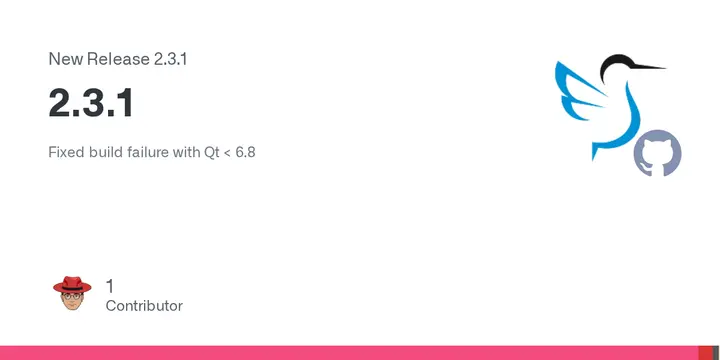The LXQt team has announced the release of lxqt-panel version 2.3.1, a significant update for the LXQt desktop environment. The lxqt-panel functions as the taskbar and central hub, where users can engage with their systems through interactive components known as "plugins" or "widgets." This update primarily focuses on enhancing stability for developers utilizing older systems, especially those operating with Qt versions prior to 6.8, by modifying the build process to accommodate these earlier library versions.
In addition to improved compatibility with older Qt libraries, version 2.3.1 features up-to-date language translations for all supported languages and distributions, ensuring that users experience more accurate and consistent language options in their interfaces.
For users looking to maximize their experience with LXQt-Panel, a user-friendly "Add Plugins" dialogue is available, showcasing all available widgets along with concise descriptions. This feature simplifies the process of browsing and selecting from the diverse array of plugins.
Users interested in trying out the latest enhancements can download lxqt-panel 2.3.1 from the project's GitHub repository. This update not only addresses specific build issues but also enriches the overall user experience by refining the interface's multilingual support.
To extend this release, future updates could focus on introducing additional plugins that enhance functionality, improving user customization options, or integrating new features that leverage advancements in newer versions of the Qt library. The LXQt team could also consider community feedback to prioritize enhancements that users find most beneficial, fostering a more robust and versatile desktop environment
In addition to improved compatibility with older Qt libraries, version 2.3.1 features up-to-date language translations for all supported languages and distributions, ensuring that users experience more accurate and consistent language options in their interfaces.
For users looking to maximize their experience with LXQt-Panel, a user-friendly "Add Plugins" dialogue is available, showcasing all available widgets along with concise descriptions. This feature simplifies the process of browsing and selecting from the diverse array of plugins.
Users interested in trying out the latest enhancements can download lxqt-panel 2.3.1 from the project's GitHub repository. This update not only addresses specific build issues but also enriches the overall user experience by refining the interface's multilingual support.
To extend this release, future updates could focus on introducing additional plugins that enhance functionality, improving user customization options, or integrating new features that leverage advancements in newer versions of the Qt library. The LXQt team could also consider community feedback to prioritize enhancements that users find most beneficial, fostering a more robust and versatile desktop environment
LXQt-Panel 2.3.1 released
The LXQt team has released a new point update for the LXQt desktop environment, making version 2.3.1 of the lxqt-panel available for download. The LXQt panel serves as the taskbar and central hub where users interact with their system, utilizing interactive elements known as "plugins" or "widgets." This latest release includes updates that improve stability for developers working on older systems, particularly those using Qt < 6.8, by adjusting the build process to work with earlier versions of the Qt library.


